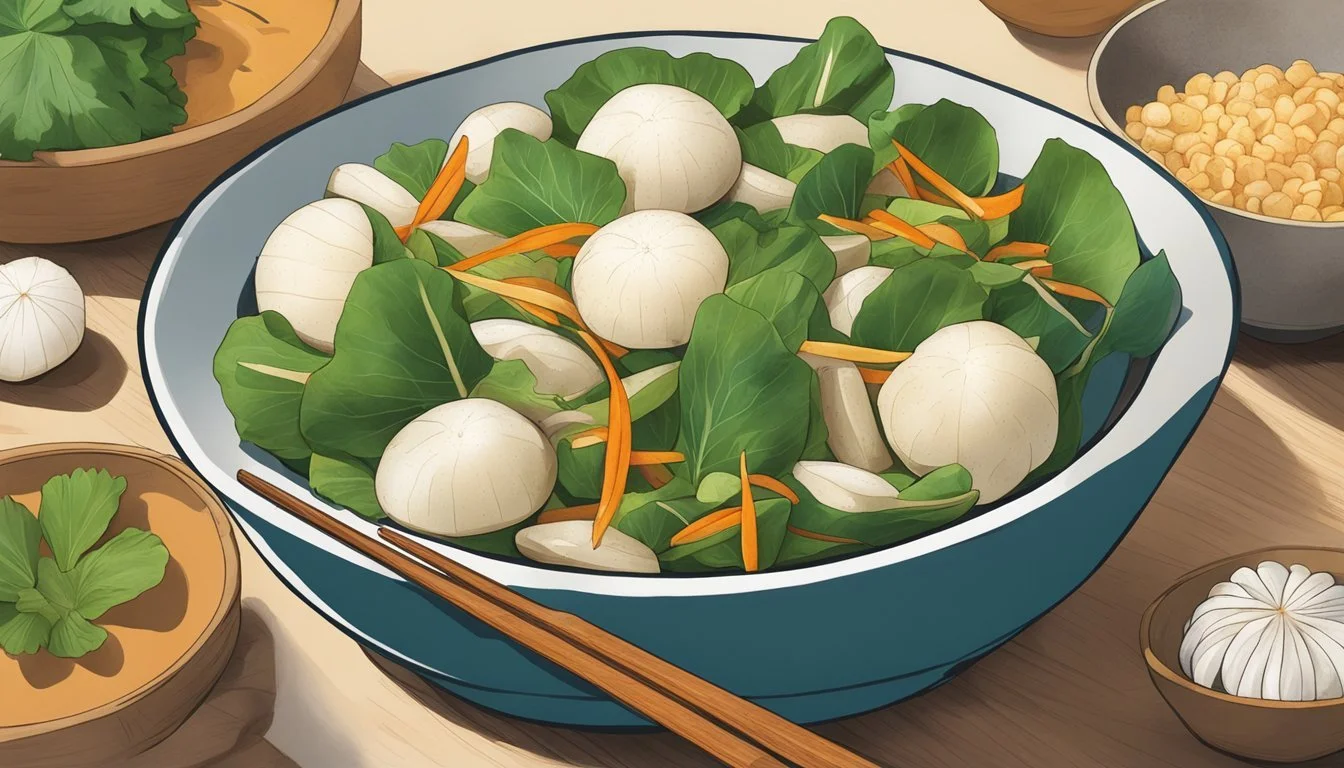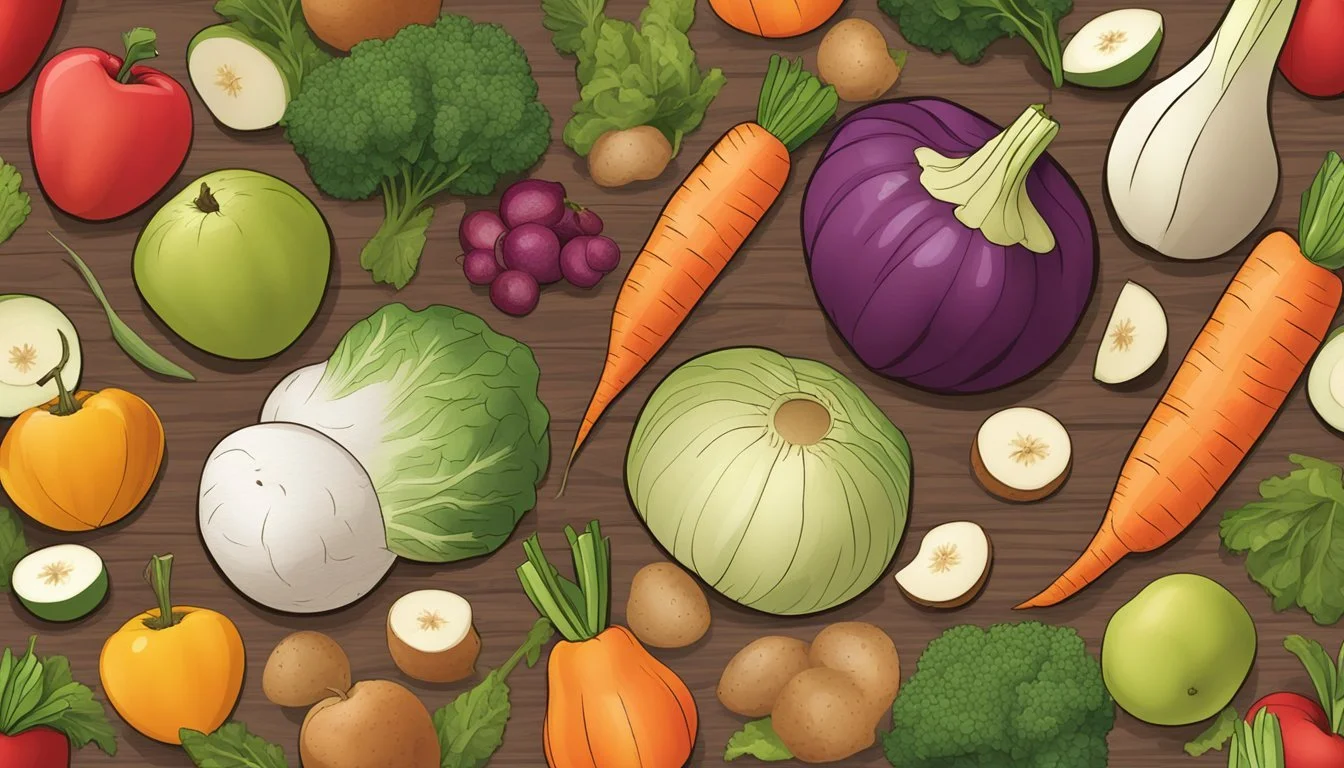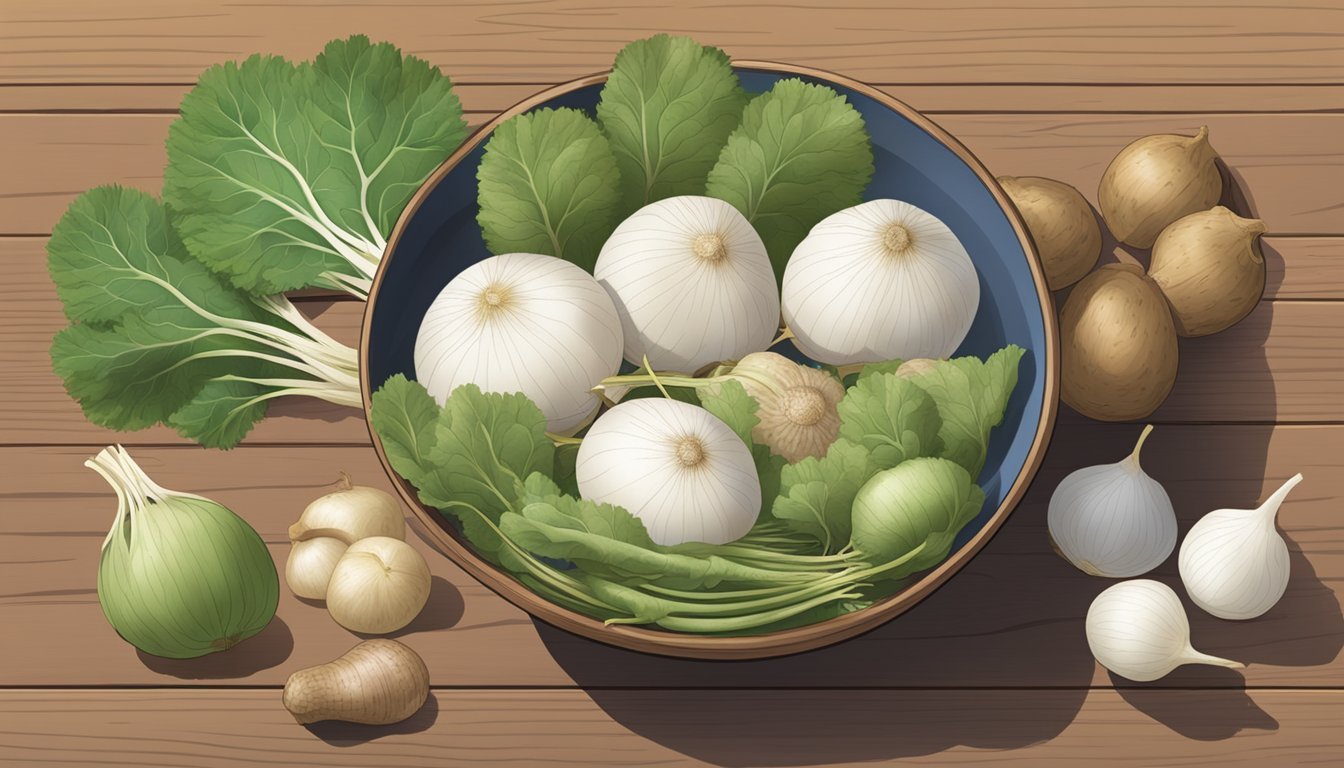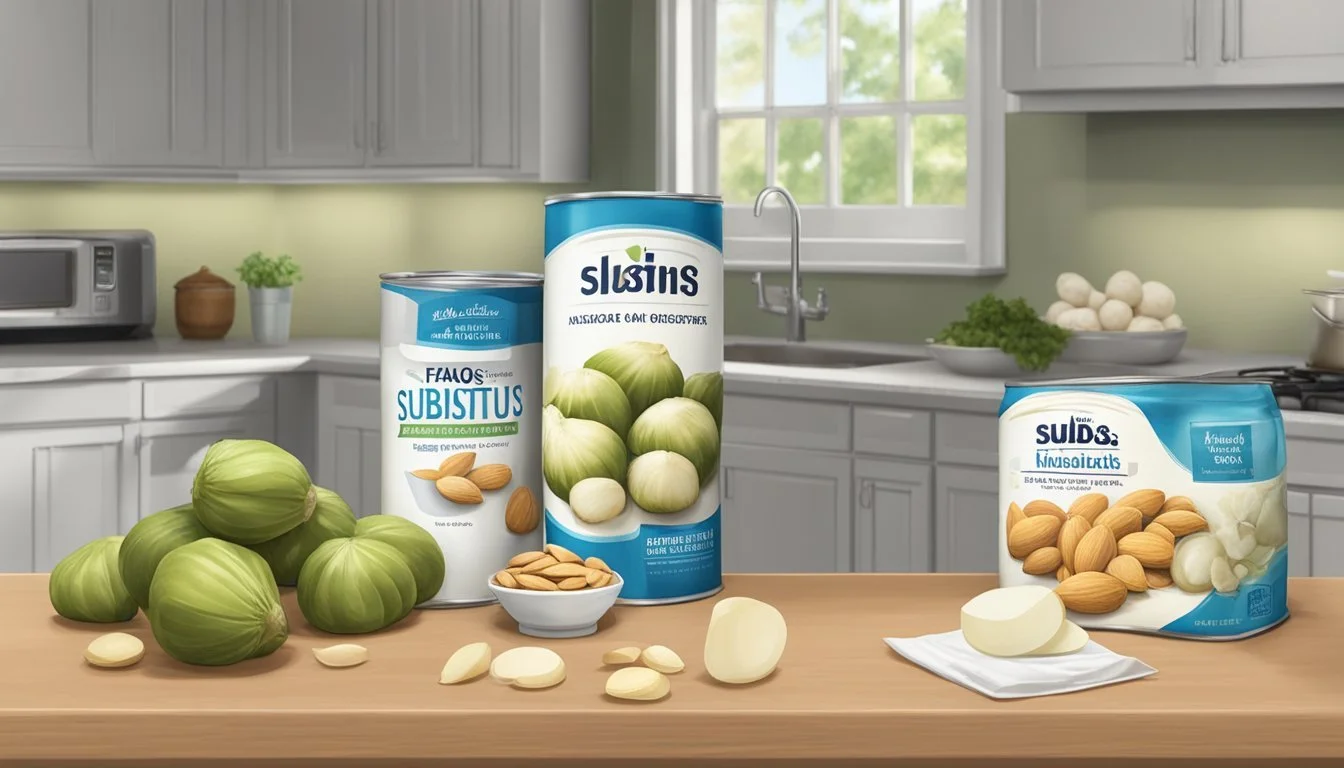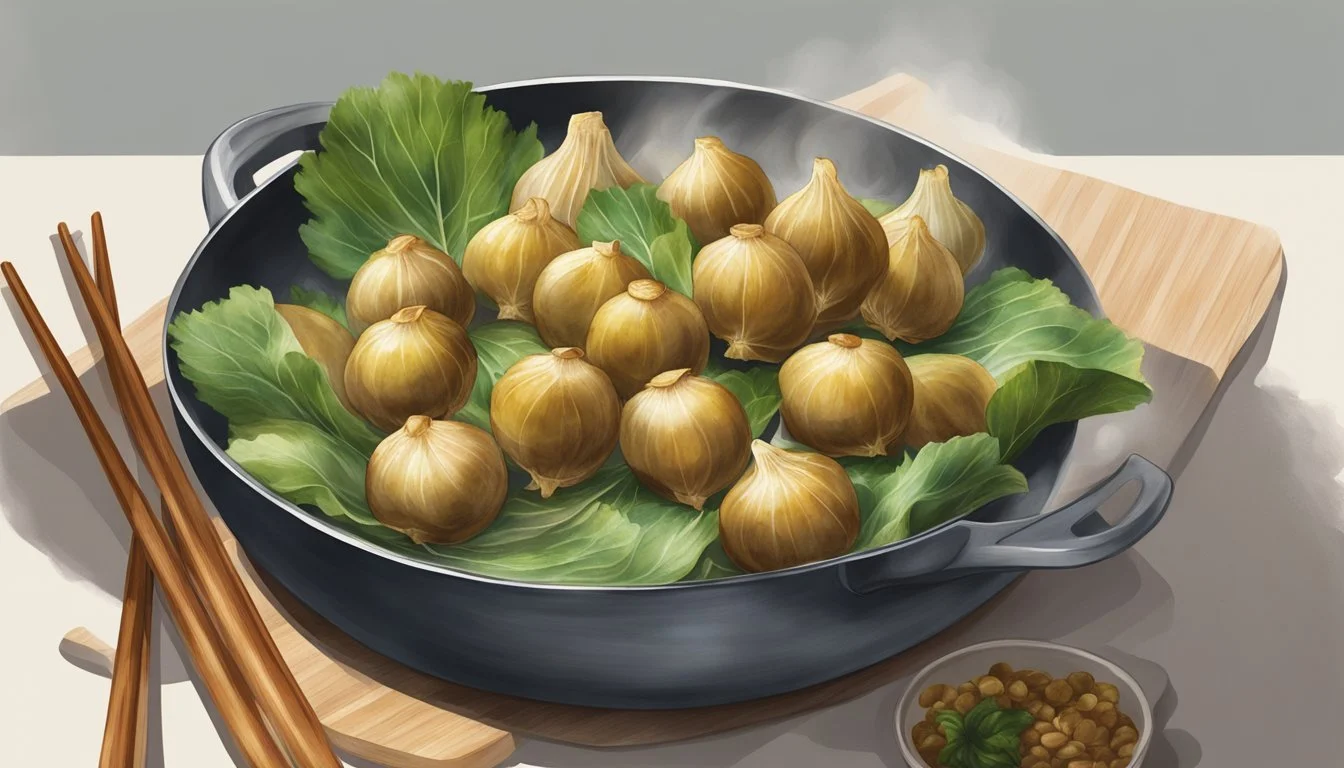Water Chestnuts Substitutes
Top Alternatives for Your Recipes
Water chestnuts are a crunchy and sweet aquatic vegetable often used in Asian recipes to add a unique texture and flavor to dishes such as stir-fries, salads, and appetizers. Their ability to remain crisp even after being cooked makes them a sought-after ingredient for adding a contrasting texture to a variety of dishes. Known for their versatility, water chestnuts can be eaten raw, boiled, fried, or incorporated as a component in baked goods.
However, there are times when water chestnuts may not be readily available, or someone might be looking for an alternative that fits their dietary restrictions or flavor preferences. In such cases, finding a suitable substitute that maintains the dish's integrity without compromising on taste or texture becomes important. Substitutes include other crunchy vegetables like jicama, turnips, and radishes, offering a similar texture. For those with nut allergies or other concerns, a range of other non-nut options are also available to emulate the characteristic crunch and mild flavor of water chestnuts.
Understanding Water Chestnuts
Water chestnuts are a versatile ingredient renowned for their distinctive crunch and ability to complement a myriad of dishes. This section provides insights into their nutritional benefits, culinary roles, and the characteristics of their texture and flavor.
Nutritional Profile
Water chestnuts are low in calories yet rich in nutrients. A single serve (half a cup) of water chestnuts provides approximately:
Calories: 60
Fiber: 3g
Potassium: 350mg
Vitamin C: 7% of the Daily Value (DV)
Magnesium: 6% of the DV
Copper: 16% of the DV
Vitamin B6: 10% of the DV
Additionally, these aquatic vegetables are a good source of iron, phosphorus, calcium, manganese, and contain a high water content.
Culinary Uses
Water chestnuts are a common ingredient in Asian dishes. They can be eaten raw or cooked and are often utilized in:
Stir-fries
Salads
Soups
Appetizers
These versatile ingredients are suitable for both sweet and savory dishes, bringing a refreshing texture to each meal they grace.
Texture and Flavor
The crisp texture of water chestnuts is one of their most celebrated attributes. They retain a pleasant crunchiness even after being cooked, which makes them a sought-after component in various dishes. In terms of flavor, water chestnuts have a slightly sweet and neutral taste with a hint of nuttiness, allowing them to absorb the flavors of the other ingredients they are cooked with. They lack the peppery flavor that some other crunchy vegetables might possess.
Best Substitutes for Water Chestnuts
When replacing water chestnuts, the goal is to replicate their crisp texture and subtle flavor commonly used in stir-fries, salads, and Asian dishes. Effective substitutes provide a similar mouthfeel and are versatile in cooking applications.
Jicama
Jicama is a root vegetable known for its crisp texture and high fiber content. Jicama slices are excellent in mimicking the crunch of water chestnuts, making them ideal for both cooked and raw dishes.
Jerusalem Artichoke
Often referred to as sunchoke, the Jerusalem artichoke is a member of the sunflower family and can create an "earthy apple" flavor profile. Its fiber-rich composition and firmness provide a suitable water chestnut alternative.
Daikon Radish
Daikon radish, a staple in Asian cooking, offers a crisp texture akin to water chestnuts. It's used in both raw and cooked forms, and integrates well into various recipes requiring the crisp bite of a water chestnut.
Turnips and Radishes
Both turnips and radish slices, especially white turnips, have the crisp texture and mild taste ideal for replacing water chestnuts. They provide a similar crunch and are fiber-rich, making them nutritious stand-ins.
Bamboo Shoots
Bamboo shoots, whether canned or fresh, are traditional in Asian dishes and provide a texture and taste closely resembling water chestnuts. They're versatile in cooking and can serve as a direct 1:1 substitute in most recipes.
Lotus Root
Lotus root, with its high fiber content and uniquely crisp texture, is a fitting alternative. When sliced and cooked, it absorbs flavors well, much like water chestnuts, and maintains a satisfying crunch.
Almonds and Hazelnuts
Almond flour and hazelnut flour, made from raw hazelnuts, work well as substitutes for water chestnut flour. These nut flours add a grain-free nutty taste and are often used in breading or baking.
Apples
Particularly tart and crisp varieties like Granny Smith, apples bring a tangy freshness to dishes. They can stand in for the water chestnut's crunch when a subtle sweetness is acceptable.
Celery
Celery offers both fiber and a crisp texture to recipes. While the flavor is more distinct than water chestnuts, its crunchy stalks work well in providing a similar textural contrast to dishes.
Avoidable Substitutes
While exploring alternatives to water chestnuts, it's important to note that some substitutes may not provide the desired result in terms of texture or flavor, particularly in dishes where the unique characteristics of water chestnuts are crucial. This section sheds light on a couple of alternatives that one might think to use as substitutes but are generally best avoided due to their dissimilar properties.
Nut Flours
Nut flours such as almond and hazelnut flour have gained popularity as grain-free options in baking and as thickening agents. While they can be suitable substitutes for water chestnut flour in some baking recipes due to their gluten-free nature, they are not recommended for replacing whole water chestnuts in cooking. Their distinctly nutty taste and fine texture do not mimic the mild flavor and crispness of fresh water chestnuts. Using nut flours as a substitute can result in a loss of the characteristic crunchy texture that water chestnuts provide to dishes such as stir-fries and salads.
Almond Flour: A nut flour with a sweet, nutty flavor; inappropriate for mimicking water chestnut's texture.
Hazelnut Flour: Also nutty and unable to replicate the crunch of water chestnuts.
Chestnuts
Despite the similar name, chestnuts are markedly different from water chestnuts and are not a suitable substitute in recipes calling for the latter. The confusion stems from the name, but their culinary uses are distinct. Chestnuts come from the Castanea species of deciduous trees and shrubs, whereas water chestnuts are an aquatic tuber vegetable. Chestnuts are sweet and soft when cooked, lacking the crunchy texture and neutral taste of water chestnuts.
Difference Between Chestnuts and Water Chestnuts:
Chestnuts: Sweet, soft, and used in sweet or savory dishes but not for their crunch.
Water Chestnuts: Crunchy, mild-flavored, and used mainly for their texture and ability to absorb flavors.
Although cassava flour is not a nut flour, it is also worth mentioning briefly as another flour to avoid as a substitute for whole water chestnuts, for the same reasons nut flours are not suitable: texture mismatch and a different flavor profile.
Health Benefits of Substitutes
When considering substitutes for water chestnuts, it's important to examine their health benefits. These alternatives not only replicate the crunchy texture in cooking but also bring a variety of nutritional advantages that can support weight management and promote digestive and heart health.
Nutritional Advantages
Substitutes like jicama and daikon offer lower calories yet are rich in essential nutrients. Here's a snapshot:
Jicama: Packed with fiber, it also contains vitamin C, magnesium, and potassium.
Daikon: Provides calcium, iron, and phosphorus.
These root vegetables are a powerhouse of nutrients, providing an array of vitamins and minerals that are beneficial for maintaining overall health.
Diet and Weight Loss
Eating foods with high fiber content can aid in weight loss. Both jicama and daikon are excellent low-calorie, high-fiber alternatives that contribute to a feeling of fullness. Here's how they compare to water chestnuts in terms of fiber (per 100g):
Substitute Fiber Jicama 4.9g Daikon 1.6g Water Chestnut 3g
These fiber-rich alternatives offer fewer calories, which can be beneficial for those watching their calorie intake for weight management.
Digestive and Heart Health
Root vegetables like turnips and daikon are important for digestive health due to their fiber content and can help in preventing constipation. They also contribute to heart health by maintaining normal blood pressure levels and reducing the risk of heart diseases.
Turnips: Contain potassium, which is essential for heart health.
Daikon: Its fiber can help reduce cholesterol levels.
Additionally, some substitutes like bamboo shoots and celery contain antioxidants, which may protect against certain diseases. Including these as part of a balanced diet can hence promote better heart and digestive health.
Frequently Asked Questions
What can be used in place of water chestnuts for a similar crunch?
Jicama: Closely matches the texture; use chopped in a 1:1 ratio.
Radish Slices: Offer a peppery flavor and crunch.
Celery: Provides a suitable crunch, though slightly different in flavor.
Are canned water chestnuts a good substitute for fresh?
Yes, they can be used interchangeally; rinse canned water chestnuts to reduce any tinny taste.
Do Jerusalem artichokes work as a water chestnut substitute?
Yes, with a similar texture and nutty flavor, they are excellent in cooked dishes.
Can I use nut flours as a substitute?
Almond Flour and Hazelnut Flour work for binding in recipes, but won't replicate the crunch.
Is it possible to substitute daikon for water chestnuts?
Daikon radish is an excellent substitute, especially when sliced and used in raw applications.
Can bamboo shoots replace water chestnuts?
Bamboo shoots can substitute for a softer texture, ideal in stir-fries.
Why can't chestnuts replace water chestnuts?
Despite the name, chestnuts have a completely different taste and texture, originating from different plant families.
It is important for individuals to choose a substitute that not only mimics the texture of water chestnuts but also complements the other flavors in the dish they are preparing.
Conclusion
In cases where water chestnuts are unavailable, cooks can confidently turn to a variety of suitable substitutes. These alternatives will maintain the desired texture and flavor in a range of culinary applications, from stir-fries to salads.
Top Replacements:
Jicama: Offers a 1:1 substitution; provides crunch.
Bamboo Shoots: Tender, yet crisp; best used fresh.
Jerusalem Artichokes: Mimics water chestnut texture; adds a nutty taste.
Celery: Readily available; contributes a slight bite and crunch.
Daikon Radish: Subtly spicy; performs well in a variety of dishes.
Flours as Thickeners: For preparations requiring water chestnuts primarily for thickening, the following flours are adequate stand-ins:
Almond Flour
Hazelnut Flour
Cassava Flour
When selecting a substitute, individuals should consider both the texture and flavor impact on the intended dish. Some options like daikon radish or celery may add a distinctive taste which should mesh with the dish's overall flavor profile. It is recommended that substitutes be introduced in equal proportions to the original water chestnut requirement, with adjustments made according to personal preference and recipe specificity.

